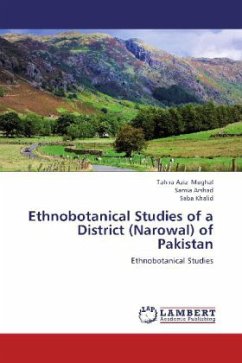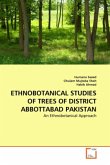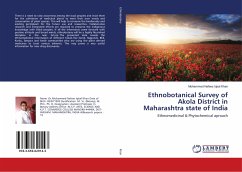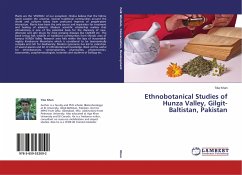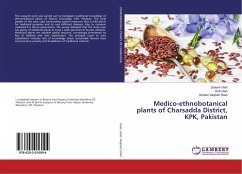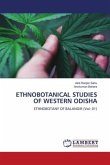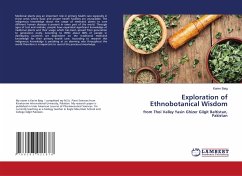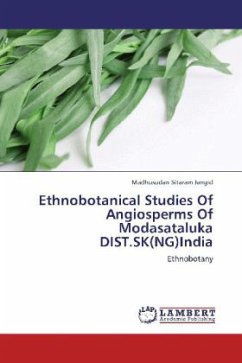Ethnobotanical studies of Narowal District were carried out for the first time. Through the use of questionnaire, visits and personal observations, 12 villages of Narowal district, 95 plant species belonging to 41 families were studied, from them 4 families were monocots and 37 were dicots. Ethnobotanical information showed that 95 species had various local uses. These include 69 medicinal plants, 80 multi-purposes plants, 15 fodder and forage, 7 fuel wood species, 11 vegetable/pot herb spp., 9 spp., are fruit yielding, 4 ornamental spp., 4 timber wood, 56 agricultural tools and 3 spp., are thatching and roofing spp. The Ethnobotanical study of area reveals that investigated area was under heavy biotic pressure due to urbanization, deforestation and pollution. Many Ethnobotanical plants are decreasing in this area due to these factors.
Bitte wählen Sie Ihr Anliegen aus.
Rechnungen
Retourenschein anfordern
Bestellstatus
Storno

